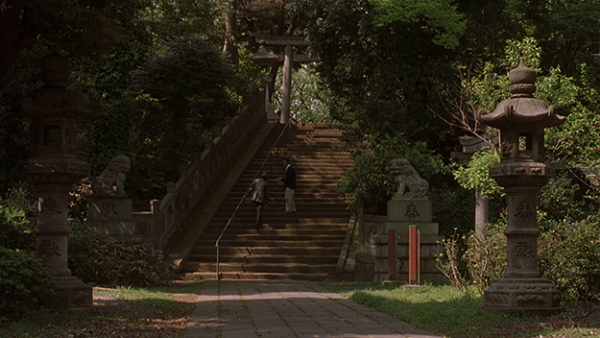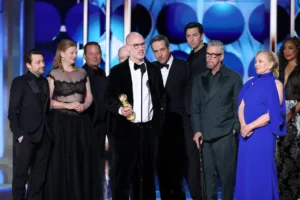‘Yi Yi’ Review: The Metropolis Which Reflects Reality

Photo Courtesy of INDIEWIRE
★★★★★
Taipei’s fruitful beauty captured in all its grandeur
A symphony of sumptuous tones embodies the interior domain of an ancestral tale — and it especially applies to the ones that intrinsically derive from the aging generations. Contextual design and an undying desire for a nourishing narrative that’s perpetually full of life must gauge the climactic crescendos as the essence of the story mingles with its underlining justifications. And most profoundly, the finite aspects of the characters as they flourish under the sun’s fruitful glow must provide a tangible sense of optimism as although the truth may not always be quintessential — it must convey a semblance of self-assurance.
Moreover, a sprawling ensemble cast needs to complement each instinctual aspect of the mortal, humanistic paradigm. In a sense, the dynamic current of the individuals should always be altering as the more static beings can quite prevalently thrust an inadequate, sour taste into the viewer’s mouth. But it’s also quite clear when a screenwriter has meticulously fine-tuned every detail of a film’s contemporary flair as the formulation of pure, imaginative proficiency assembles. And consequently — idealistic creations — including Edward Yang’s familial keystone of “Yi Yi,” find themselves infused with lush undertones that, in turn, depict flawless final cuts.
As a film of pure reality through the scope of the protagonistic Jian family, “Yi Yi” draws upon what it means to feel the warm, incomparable embrace of family. Furthermore, Mr. Yang’s script proportionally asserts itself on a scale of true cinematic poetry as the tale ages its illustrious complexion similar to a fine wine with its smooth, quaffable tang. And in short, the story divulges itself as a reflection of reality and generational co-existence. It’s an unraveling quilt that differentiates the beauty and sorrow from what evolves through the passage of time.
Most undoubtedly harmonious about Edward Yang’s directorial prowess — however — lies within his stunning ability to interweave a score within incessant cinematography. Primarily, the frame in which N.J. exits the outskirts of Taipei via transit and the turquoise tinge envelopes Wei-han Yang’s impeccable framing of the metropolis as it is met with an angelic piano solo from Kai-Li Peng that is packed to the brim with unadulterated imagery. Subsequent sequences also hit an emotionally staggering chord — especially for someone who tries to connect with the thematic subconscious of each facet of the artistic paragon. For example, viewing Jonathan Chang in his character of Yang-Yang as he inquisitively wanders around his apartment attempting to capture the ever-elusive mosquito through the very lens of his camera connects to the viewer through contingently nostalgic scenarios.

Additionally, on the postulate of visual intrigue, each frame within “Yi Yi,” especially throughout the nighttime fragments, bends cunningly to the emotional wills and whims of each individual character. Moreover, the urbanistic metropolis finds itself recurringly swallowed in a tone of intimate exuberance that coalesces the bare morality of each singular corpuscle within the average human mind.
However, from a more external scope, the work of Edward Yang — while being quite analogous to his other hereditary studies such as “A Brighter Summer Day” — showcases some of the most phenomenal sequence framing throughout the denouement of “Yi Yi.” To expeditiously analyze the concluding frame of the film which includes Yang-Yang as he speaks to his recently deceased grandmother at her funeral, he speaks in the tone of a person in complete despair of not having the time nor dedication to fully live out the connotations of an average boy’s life as he eludes to still finding his way but assures that he will soon grasp the meaning of humanistic existence. And throughout the final segments of dialogue — the existential pragmatism softly disperses and Yang-Yang drops the book from which he reads to his waist in order to orchestrate the conclusion of the familial study amongst “Yi Yi’s” subtexts in a gut-wrenching — yet exquisite manner.
Truthfully, the motion picture stands at a hefty run-time, but it does not sustain a second of being even remotely stagnant as the screenplay places the generational depiction within the confines of Taipei in a state of everlasting motion. Furthermore, this energy that blossoms and matures will continue to pulse with confidence as it feeds you with life and inner serenity. And, successively, “Yi Yi” acts like one big aspiration — a force of eternal ambition that you never hope will disseminate, and a systematic portrait of the confluence between the rivers of conflict and solution as they find their way to concoct the oxbow lake of pure togetherness.
Streaming Services Provided By :










